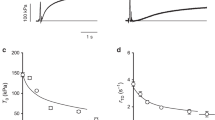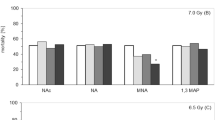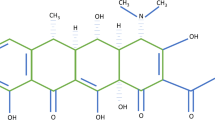Abstract
BENESCH and co-workers1 have reported almost complete absence of calcification in the bones of rat fœtuses at term, following administration of large doses of sulphanilamide and sulphapyridine to the mothers during the last seven to ten days of the gestation period. Their report was based upon haematoxylin-staining of decalcified bones, with the reservation that this method might not be reliable, and upon X-ray examination of the bones of the foetuses from sulphonamide-treated rats, no mention being made of control observations upon normal fœtuses. The results of observations upon mice were stated to be equivocal.
This is a preview of subscription content, access via your institution
Access options
Subscribe to this journal
Receive 51 print issues and online access
$199.00 per year
only $3.90 per issue
Buy this article
- Purchase on Springer Link
- Instant access to full article PDF
Prices may be subject to local taxes which are calculated during checkout
Similar content being viewed by others
References
Benesch, R., Chance, M. R. A., and Glynn, L. E., Nature, 155, 203 (1945).
McLean, F. C., and Bloom, W., Anat. Rec., 78, 333 (1940).
Bloom, W., and Bloom, M. A., Anat. Rec., 78, 497 (1940).
Silver, P. H., and Golding, J. S. R., Lancet, i, 528 (1945).
Author information
Authors and Affiliations
Rights and permissions
About this article
Cite this article
MILLER, Z., WALDMAN, J. & MCLEAN, F. Failure of Sulphanilamide to Inhibit Calcification of Bone. Nature 161, 273–274 (1948). https://doi.org/10.1038/161273b0
Issue Date:
DOI: https://doi.org/10.1038/161273b0
This article is cited by
-
Studies on the Interaction of Lead(II) and Uranyl(II) with Methylcysteine and Penicillamine Bioactive Sulfur-Containing Ligands
Russian Journal of Coordination Chemistry (2005)
-
Ultramicroanalysis of pH, \(P_{CO_2 } \) and carbonic anhydrase activity at calcifying sites in cartilage
Calcified Tissue Research (1971)
Comments
By submitting a comment you agree to abide by our Terms and Community Guidelines. If you find something abusive or that does not comply with our terms or guidelines please flag it as inappropriate.



